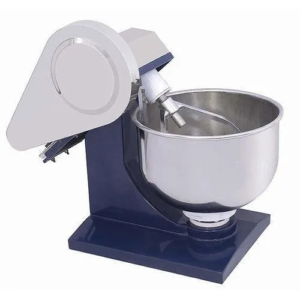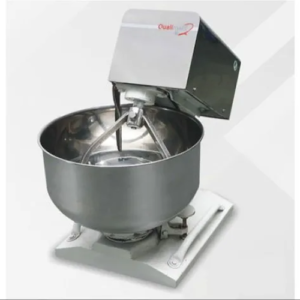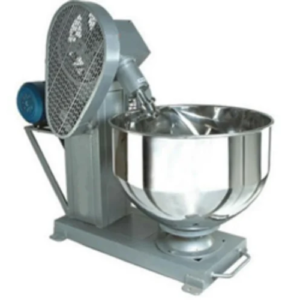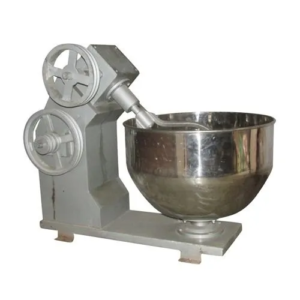Subtotal: ₹40,000.00
Dough Mixers
-
-
-
₹18,000.00
Dough Mixers: The Ultimate Guide to Choosing the Best Dough Mixing Machine
A dough mixer is an essential kitchen appliance used in commercial bakeries, pizzerias, restaurants, and even home kitchens. It simplifies the process of mixing, kneading, and preparing dough for bread, pizza, pastries, and other baked goods. Investing in a high-quality dough mixer ensures efficiency, consistency, and improved productivity in the kitchen.
Key Features of a Dough Mixer
1. Powerful Motor
Dough mixers come with high-powered motors ranging from 500W to over 3000W, allowing them to handle large batches of dough effortlessly.
2. Heavy-Duty Bowl Capacity
Available in various sizes, from 5 quarts for small-scale use to 80 quarts or more for commercial kitchens, catering to different baking needs.
3. Multiple Speed Settings
Adjustable speeds allow for precise control over mixing and kneading, ensuring proper dough consistency.
4. Durable Construction
Most dough mixers are made of stainless steel and cast iron, making them sturdy and long-lasting.
5. Safety Features
Equipped with overload protection, emergency stop buttons, and bowl guards to ensure safe operation.
6. Interchangeable Attachments
Includes dough hooks, flat beaters, and wire whisks to accommodate different mixing requirements.
7. Tilt-Head or Fixed Bowl Design
Some models have a tilt-head mechanism for easy bowl access, while others have a fixed bowl with a bowl-lift system for heavy-duty mixing.
Types of Dough Mixers
1. Spiral Dough Mixers
- Ideal for pizzerias and bakeries.
- The rotating bowl ensures thorough and consistent dough mixing.
- Best for high-hydration dough such as pizza and bread dough.
2. Planetary Dough Mixers
- Versatile and commonly used in restaurants and bakeries.
- Uses interchangeable attachments for different mixing tasks.
- Suitable for mixing, whipping, and kneading.
3. Vertical Cutter Mixers (VCMs)
- High-speed mixing suitable for large-scale food production.
- Can mix, chop, and knead large quantities of dough quickly.
- Best for commercial kitchens needing high output.
4. Stand Dough Mixers
- Designed for small bakeries and home kitchens.
- Compact and easy to use with various speed settings.
- Great for small batches of dough and other mixing needs.
5. Countertop Dough Mixers
- Smaller, space-saving mixers for cafes, small bakeries, and home kitchens.
- Offers moderate capacity with easy-to-use features.
Benefits of Using a Dough Mixer
- Increases Efficiency: Reduces manual labor and saves time in dough preparation.
- Ensures Consistency: Achieves uniform mixing and texture for professional-quality dough.
- Heavy-Duty Performance: Handles large batches effortlessly.
- Versatile Functionality: Can mix dough, batter, and other food ingredients.
- Durable and Long-Lasting: Made of high-quality materials for prolonged use.
- Reduces Physical Strain: Eliminates the need for manual kneading, making baking easier.
How to Choose the Right Dough Mixer
1. Capacity Requirements
- Home Use: 5 to 10 quarts
- Small Bakery or Pizzeria: 20 to 40 quarts
- Large-Scale Commercial Use: 60 to 80+ quarts
2. Power and Speed Settings
- High-powered motors for heavy dough mixing.
- Variable speed controls for flexibility.
3. Type of Dough Being Made
- Spiral mixers for high-hydration dough.
- Planetary mixers for general-purpose mixing.
4. Build Quality and Durability
- Stainless steel bowls and metal gears for longevity.
- Strong motor with overload protection.
5. Safety Features
- Automatic shutoff and emergency stop functions.
- Bowl guard to prevent accidental contact with moving parts.
Maintenance Tips for Dough Mixers
- Clean the bowl and attachments after each use to prevent dough buildup.
- Lubricate moving parts regularly to ensure smooth operation.
- Check for loose bolts and screws to maintain stability.
- Avoid overloading the mixer to prevent motor burnout.
- Store in a dry place to prevent rust and corrosion.
Frequently Asked Questions (FAQs)
1. What is the difference between a spiral and a planetary dough mixer?
Spiral mixers are best for kneading heavy dough like pizza and bread, while planetary mixers are more versatile, allowing for different mixing tasks.
2. How much dough can a commercial mixer handle?
This depends on the mixer’s capacity. Commercial mixers typically handle 10 to 80 quarts of dough at a time.
3. Can I use a planetary mixer for pizza dough?
Yes, but a spiral mixer is more efficient for pizza dough as it provides better gluten development.
4. How do I clean my dough mixer?
Detach the bowl and attachments, wipe down surfaces with a damp cloth, and avoid using harsh chemicals that can damage the machine.
5. Are dough mixers noisy?
Some high-powered models can be noisy, but many brands offer quiet operation features to reduce kitchen noise.
Conclusion
A dough mixer is a crucial investment for bakeries, pizzerias, and restaurants that require efficient and consistent dough preparation. Choosing the right model depends on capacity, power, type of dough, and additional features. Whether you need a spiral, planetary, or countertop dough mixer, investing in a high-quality machine will enhance productivity and ensure top-notch dough quality.
For the best performance, select a durable, powerful dough mixer that meets your kitchen’s needs and enjoy effortless baking and dough preparation.





